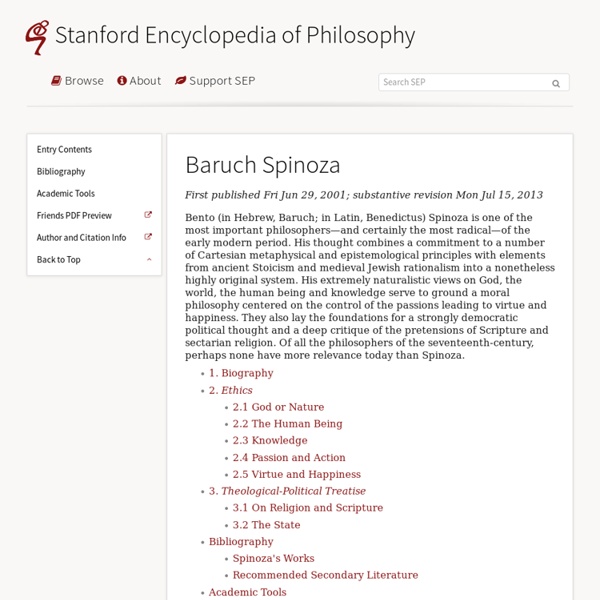Reason
Psychologists and cognitive scientists have attempted to study and explain how people reason, e.g. which cognitive and neural processes are engaged, and how cultural factors affect the inferences that people draw. The field of automated reasoning studies how reasoning may or may not be modeled computationally. Animal psychology considers the question of whether animals other than humans can reason. Etymology and related words[edit] In the English language and other modern European languages, "reason", and related words, represent words which have always been used to translate Latin and classical Greek terms in the sense of their philosophical usage. The original Greek term was "λόγος" logos, the root of the modern English word "logic" but also a word which could mean for example "speech" or "explanation" or an "account" (of money handled).[7]As a philosophical term logos was translated in its non-linguistic senses in Latin as ratio. Philosophical history[edit] Classical philosophy[edit]
Mathematics
Feedbooks | Food for the mind
Heidegger, Martin - Nietzsche [tomo II] [1936-1946]
Fallacy List
1. FAULTY CAUSE: (post hoc ergo propter hoc) mistakes correlation or association for causation, by assuming that because one thing follows another it was caused by the other. example: A black cat crossed Babbs' path yesterday and, sure enough, she was involved in an automobile accident later that same afternoon. example: The introduction of sex education courses at the high school level has resulted in increased promiscuity among teens. A recent study revealed that the number of reported cases of STDs (sexually transmitted diseases) was significantly higher for high schools that offered courses in sex education than for high schools that did not. 2. example: Muffin must be rich or have rich parents, because she belongs to ZXQ, and ZXQ is the richest sorority on campus. example: I'd like to hire you, but you're an ex-felon and statistics show that 80% of ex-felons recidivate. 3. example: All of those movie stars are really rude. 4. 5. 6. 7. 8. 9. 10. 11. example: Only man is rational. 12.
a good question - my attempt in answering it
Management
What is Mensa? | Mensa International
Kant - Crítica de la razón pura
To Live at All is Miracle Enough
I read Richard Dawkins book ‘Unweaving the Rainbow’ a little while ago and there was a part that really brought me up short with one of those ‘WOW’ moments. It really brings home the sheer unliklihood and odds against any of us actually being born and being able to experience and enjoy this only too brief sojourn on earth. I have been thinking about it quite a bit lately and really wanted to reread it again. Unfortunately I have lent it to a friend and so was having to wait for it to be returned. Imagine my delight therefore when I stumbled upon a website with a transcript of this part of the book (plus other good stuff). I think everyone should at least read this part so I reproduce it here, together with a link to the website. Excerpt from Chapter I, “The Anaesthetic of Familiarity,”of Richard Dawkins 1998 book Unweaving the Rainbow 'We are going to die, and that makes us the lucky ones. Napoleon started it all. This is another respect in which we are lucky.
Khan Academy
Five Top Universities That Offer Free Courses Online
Five Top Universities That Offer Free Courses Online Want to get a college education for free? You may not get a diploma, but the knowledge is all yours from these top universities. By Kathryn Hawkins. Posted on February 06 2011 Maybe you sometimes find yourself wishing you’d spent a little more time with the books than jamming with the band back in your school days. If you need the actual degree for a better job, go for it. Here are some of the best places to educate yourself without paying a single penny. MIT Open Courseware. Open Yale. Harvard Open Learning Initiative. Stanford Courses on iTunes U. UC Berkeley Webcast. Need even more of an education fix? Filed under: Arts and Culture, Liked this?
Marcuse, H. - Acerca del carácter afirmativo de la cultura [1970
sociales, se extiende también al manejo de los bienes ideales. Ya no puede ser verdad queunos hayan nacido para el trabajo y otros para el ocio, unos para lo necesario y otros para lobello. Si la relación del individuo con el mercado es inmediata (dado que las características ynecesidades personales sólo tienen importancia como mercancías), también lo es su relacióncon Dios, con la belleza, con lo bueno y con la verdad. En tanto seres abstractos, todos loshombres deben tener igual participación en estos valores. Así como en la praxis material sesepara el producto del productor y se lo independiza bajo la forma general del “bien”, asítambién en la cultural se consolida la obra, su contenido, en un “valor” de validezuniversal. Esta concepción ha surgido en el terreno de una determinada formahistórica de la cultura que en adelante será denominada cultura afirmativa. vital y de la concepción del mundode la época burguesa.



